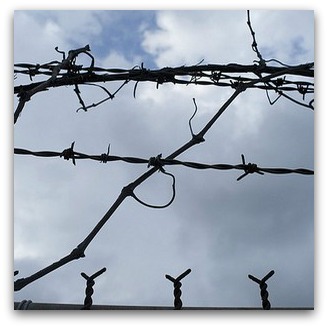Keywords: Migrant Workers
-

AUSTRALIA
- Frank Brennan
- 02 November 2013
7 Comments
'There have been innumerable post-mortems and words of advice as to how the party with new structures, election rules, and policies can pick itself up, dust off, and win the next election. Sadly some of those post-mortems have come with more coatings of spite and loathing. It is no part of my role in the public square as a Catholic priest to offer such advice.' Frank Brennan's address to the Bathurst Panthers Club, 2 November 2013.
READ MORE
-

AUSTRALIA
- John Falzon
- 19 August 2013
24 Comments
Kevin Rudd says we need a 'new politics' or a 'new way'. Tony Abbott says we'll only get a new way by electing a new government. What is missing in both statements is the recognition that what we actually need is a new kind of economic democracy: a reconfiguration of our economic prioritising away from individualism towards the common good, and towards the participation of all rather than the exclusion of many.
READ MORE 
-

RELIGION
- Frank Brennan
- 19 April 2013
11 Comments
It is time for each side of politics to stop blaming the other for the increasing wave of boats and for Gillard to cease invoking the unreal prospect of a revised Malaysia Solution. A revised arrangement consistent with the recommendations of the Expert Panel is an impossibility before the election.
READ MORE 
-

AUSTRALIA
- Fatima Measham
- 20 March 2013
7 Comments
The Prime Minister's aggressive attempts to tighten the rules for 457 visas is part of a campaign to appease her party's blue-collar base. This didn't begin last month in Western Sydney; it was kick-started as far back as 2011 when she said the 'Australian Greens do not share Australian values'.
READ MORE 
-

ECONOMICS
- Andrew Hamilton
- 07 February 2013
8 Comments
There is often a natural antipathy between the financial sector and the community sector. If you give the dog a bone, say the money men, he will only rub it in dirt and bury it. If you give the bank a bone, say the community workers, it will charge you interest on the transaction. But sometimes we are nudged to reconsider our reflexive prejudices.
READ MORE 
-

AUSTRALIA
- Jeremy Tarbox
- 01 October 2012
9 Comments
A Dominican drivers license specifies skin colour: white, light, dark, almost black or black. 'Black' likely brands the holder as a poor and inferior Haitian. Understanding this pigmentocracy is especially relevant now, on the 75th anniversary of the worst peace time human rights abuse of civilians in the Americas during the 20th century.
READ MORE 
-

AUSTRALIA
- Madeleine Hamilton
- 31 August 2012
15 Comments
The post-war migration policy favoured single men as labour for the burgeoning heavy industries. By the mid-1950s thousands of lonely male migrants populated the cities, and many local women found them threatening. Like those women, Slutwalk participants defend their right to walk the streets wearing what they want without being harassed.
READ MORE
-

AUSTRALIA
- John Menadue
- 26 July 2012
9 Comments
There is a lot of political point-scoring over whether particular countries have signed the Refugee Convention. But there is no signatory country on the route used by almost all asylum seekers fleeing to Australia. A regional framework must be built on what's available — such as the Malaysian agreement.
READ MORE 
-

AUSTRALIA
- Joachim Francis Xavier
- 15 February 2012
3 Comments
A large segment of Malaysian society and the government in particular is clearly xenophobic. Yet Malaysia has thrown its arms wide open to asylum seekers heading to Australia. What is the motivation underlying Malaysia's sudden love affair with refugee swap deals?
READ MORE 
-

AUSTRALIA
- Anthony Ham
- 12 September 2011
3 Comments
The disparate strands of Libya's revolution have been held together by a single unifying thread: a visceral desire to oust Gaddafi. Extremely effective as a rallying cry for rebellion, this anti-Gaddafi sentiment is deeply flawed as the unifying narrative for a new nation.
READ MORE 
-

EUREKA STREET/ READER'S FEAST AWARD
- Julie McNeill
- 24 August 2011
4 Comments
Sociologist Eva Cox heard all the vitriol about boat people when, as a five-year-old Jewish girl, she fled Nazi Germany and headed to Australia. My nine-year-old mother was a different kind of boat arrival: one of 135,000 'child migrants' imported under the 'Populate or Perish' policy.
READ MORE 
-

AUSTRALIA
- Gillian Bouras
- 10 August 2011
3 Comments
At least adults have a little hope of understanding the pain, and coping with it. Even the most equable of children must find the experience bewildering at best, and agonising at worst. My eldest son had a period of not eating. His migration as a child remains the defining fact of his life.
READ MORE 